Polyvim – for a Sustainable Brand, a Cleaner World and a Better Future
According to World Bank statistics, plastic waste will increase by 70% on the current level. The world’s population is already living, working, vacationing, and standing in the front row of the most significant, most unprecedented plastic waste tsunami ever faced. If not collected and managed correctly, plastic waste will contaminate and affect ecosystems in the most destructive ways.
In Georgia, approximately 900,000 tons of municipal waste is generated annually. However, by paying special attention to waste management, Georgia has set a national target to ensure that 100% of urban solid municipal waste will be collected regularly and 80% will be well-managed by 2030. Polyvim, a plastic materials recycling and synthetic fibre manufacturer in Georgia, is playing an active part in the development and movement towards a better future.
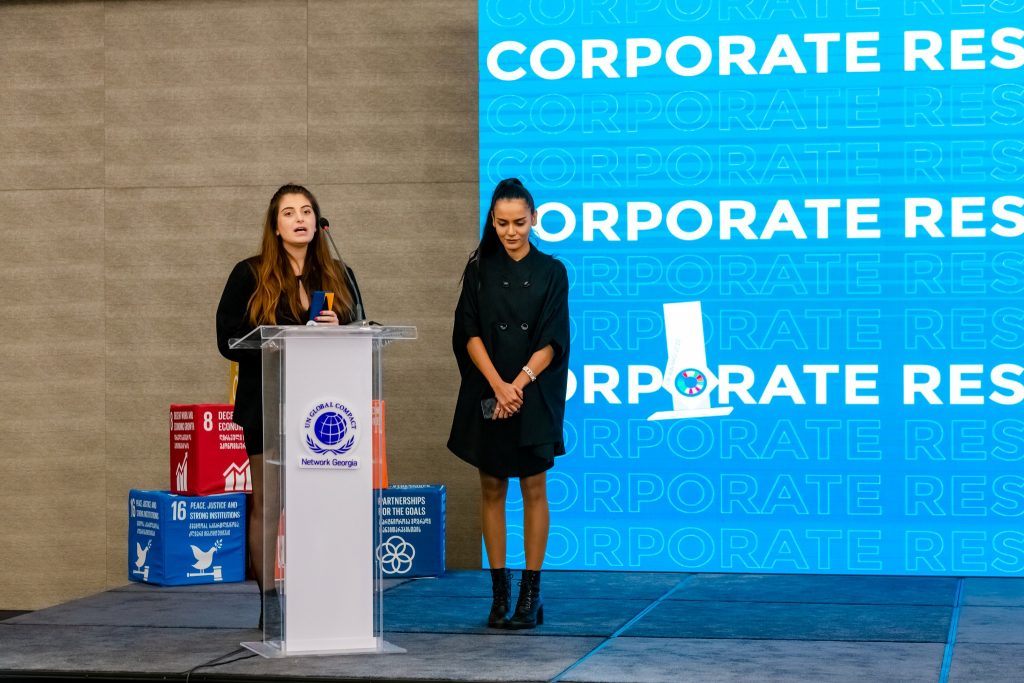
Research and Development Manager Ketevan Maisuradze, and Marketing Manager, Ms. Shiva Parizad discuss Polyvim’s activities and corporate sustainability priorities.
At Polyvim, we are engaged in the recycling of various types of plastic materials. Our factory specializes in the production of PET flakes from plastic bottles, specifically type 1 plastic. These PET flakes are suitable for manufacturing non-food grade packaging materials, such as straps and polyester fiber. When a renowned brand proudly states that their clothing, shoes, or bags are made from recycled bottles, it means their fabric is composed of PET flakes.
Over 80% of our PET flakes are exported to European markets, while the remaining percentage is utilized locally. We are proud to contribute to the circular economy by transforming discarded plastic bottles into valuable resources for secondary applications. This approach aligns with our commitment to environmental sustainability and reducing plastic waste. Moreover, we are thrilled to announce that we are in the final stages of implementing a revolutionary step in our recycling capabilities. We are expanding our operations to include recycling polypropylene (PP) and polyethylene (PE) plastics. These categories encompass HDPE, LDPE, and PP, which are used in diverse applications, ranging from household packaging, such as yogurt and shampoo bottles, to toys, plastic crates for agricultural purposes, water and gas pipes, as well as plastic films and pallets.
Through Polyvim’s innovative recycling process, we plan to produce re-granulated PP and PE in different grades. These high-quality recycled materials hold immense value for local plastic manufacturers. We are actively engaged in negotiations with pipe manufacturers and other local stakeholders to ensure that our products meet their specific requirements. By collaborating closely with these manufacturers, we aim to support local businesses, promote sustainability, and contribute to the circular economy.
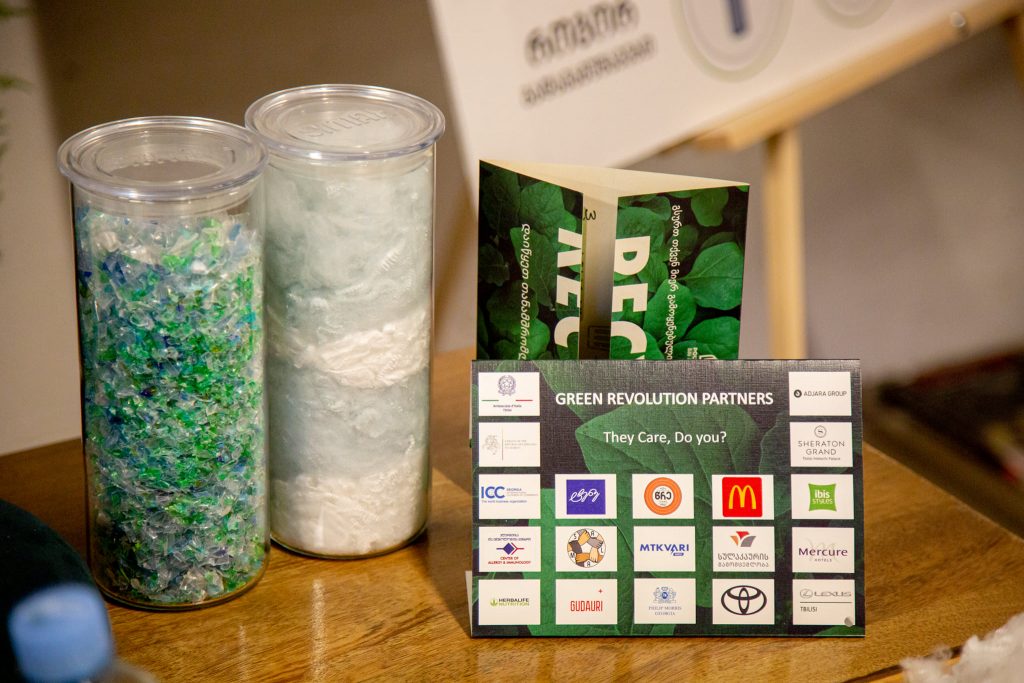
At Polyvim, we are proud to emphasize that all our materials are collected within Georgia. We are committed to supporting the local community and economy by sourcing our plastic waste exclusively from within the country. We do not import any materials for recycling, ensuring that our production remains firmly rooted in Georgia. We collaborate with a wide range of stakeholders, including individuals, collection companies, manufacturers, organizations and businesses, to collect plastic waste. By actively engaging with the local community and through fostering strong partnerships, we can demonstrate our dedication to local sourcing, sustainability, and promoting a circular economy within Georgia.
In addition to our recycling projects, we are actively involved in various campaigns. Our “Green Revolution” campaign focuses on fostering a culture of sustainability and developing corporate behavior for a more sustainable future. Through this initiative, we collect plastic waste from companies, schools, embassies, factories and other institutions. Our “1=1” campaign aims to introduce tangible value to plastic bottle waste by offering individuals 1 GEL per kilogram of plastic bottle waste they bring in.
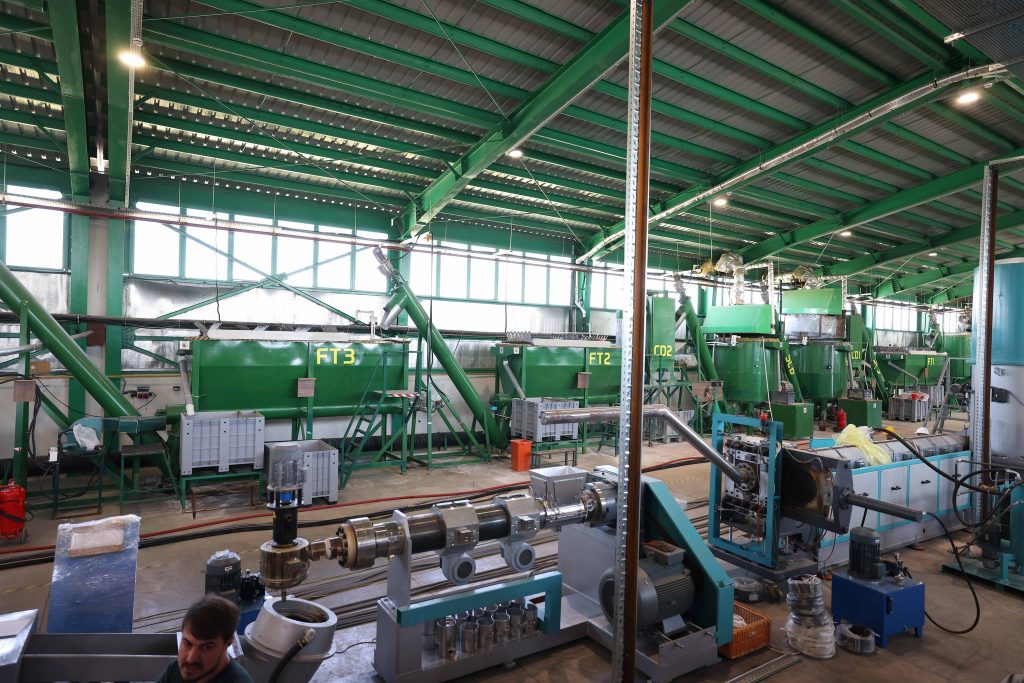
How important is corporate sustainability in your work?
Corporate sustainability is at the core of our work at Polyvim. It plays a pivotal role both internally within our organization and externally in the services we provide. Internally, corporate sustainability is essential for the long-term success and resilience of our business. Integrating sustainable practices into our operations minimizes resource consumption, reduces waste generation, and optimizes energy efficiency. We strive to create a work environment which fosters sustainability awareness and practices among our employees. This includes promoting responsible resource management, encouraging recycling and waste reduction, and implementing energy-saving measures.
Sustainability is deeply ingrained in our recycling processes. By recycling PET, PP and PE materials, we contribute to the circular economy and reduce the reliance on virgin plastics. This process not only diverts plastic waste from landfills but also reduces the demand for new plastic production, conserving natural resources and reducing the carbon emissions associated with plastic manufacturing.
Externally, our commitment to corporate sustainability is evident through our campaigns, particularly the Green Revolution. By partnering with businesses, organizations and manufacturers, we offer them the opportunity to fulfill their extended producer responsibility by recycling their post-industrial waste.

Which Sustainable Development Goals have you chosen as a priority, and does your business strategy include corporate sustainability?
At Polyvim, we are deeply committed to embracing corporate sustainability and aligning our business strategy with the Sustainable Development Goals (SDGs). As part of our strategic approach, we have carefully chosen key SDGs which we prioritize in our operations, ensuring that corporate sustainability remains at the forefront of our business endeavors.
One of our paramount priorities is SDG 12: Responsible Consumption and Production. By recycling plastic materials and reducing waste, we actively contribute to the efficient use of resources and the transition towards a more circular economy. Our efforts aim to minimize the environmental impact of plastic production and encourage sustainable consumption habits among both individuals and businesses. In addition, SDG 13: Climate Action holds great significance for us. We recognize the urgent need to address climate change and actively strive to reduce our carbon footprint. We mitigate the greenhouse gas emissions associated with plastic manufacturing through our recycling processes and energy-efficient practices. By embracing climate action, we play our part in building a more sustainable and resilient future.
Protecting our oceans and marine ecosystems is another crucial priority, encapsulated in SDG 14: Life Below Water. We are committed to preventing plastic waste from polluting our waters and endangering marine life. By recycling plastic bottles and diverting them from landfills, we contribute to conserving marine biodiversity and preserving our precious aquatic resources.
Lastly, SDG 17: Partnerships for the Goals, is fundamental to our approach. We firmly believe that collaboration is key to achieving meaningful and lasting change. By fostering partnerships with individuals, businesses, schools and organizations, we can amplify our impact and create a collective force for sustainable development.
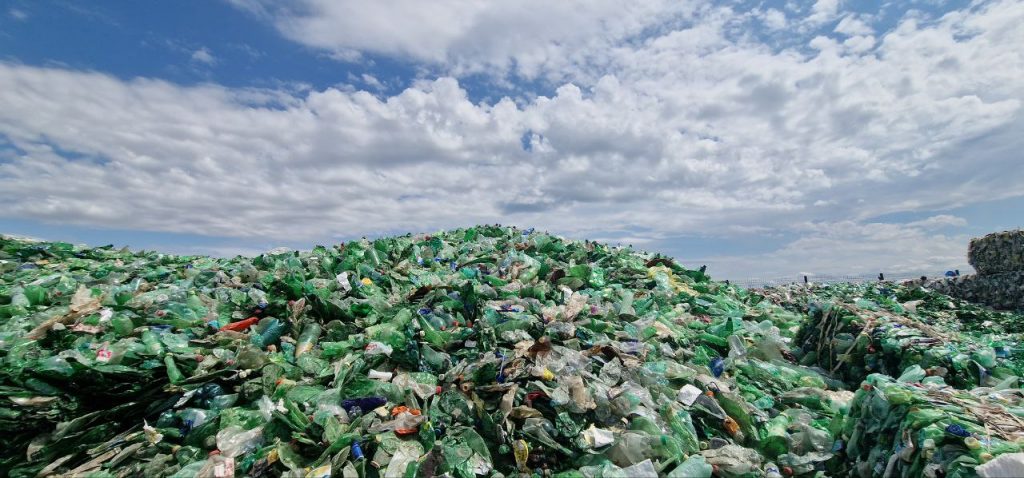
Why did you decide to join the UN Global Compact, and why is it important to bring the private sector together to create a better world?
We made the decision to join the UN Global Compact because we firmly believe in the power of collective action and collaboration in creating a better world. Joining the UN Global Compact demonstrates our commitment to upholding the Ten Principles in the areas of human rights, labor, environment, and anti-corruption. Furthermore, it provides us with a framework and guidance to integrate sustainability into every aspect of our operations, from sourcing materials to production processes and stakeholder engagement.
Bringing the private sector together through initiatives like the UN Global Compact is crucial for several reasons. Firstly, it allows us to share knowledge, best practices, and innovative solutions with other companies which are also dedicated to sustainability. By collaborating and learning from each other, we can accelerate progress and drive positive change on a larger scale.
Secondly, collective action enables us to have a more significant impact on addressing global challenges. The private sector plays a critical role in driving economic growth and development, and by aligning our efforts towards sustainability, we can contribute to the achievement of the Goals. Moreover, the UN Global Compact provides a platform for dialogue and engagement with stakeholders, including governments, civil society and the public. By actively participating in this initiative, we demonstrate our commitment to transparency, accountability, and responsible business practices. This engagement helps to build trust, foster partnerships, and create a shared vision for a more sustainable future.
What does implementing international standards in Georgian companies mean, and how important is membership of platforms such as the UN Global Compact? What would you say to businesses regarding why companies should join this initiative?
Implementing international standards in Georgian companies shows a commitment to adopting globally recognized norms, guidelines, and best practices that promote ethical, sustainable, and responsible business operations. For us at Polyvim, it means aligning our practices with international expectations in areas such as human rights, labor, environment and anti-corruption measures.
Participation in platforms like the UN Global Compact is of great importance to us. It provides a framework and platform for us to integrate sustainability into our strategies, operations, and organizational culture. By joining this initiative, we demonstrate our commitment to corporate social responsibility and the advancement of the Sustainable Development Goals. It allows us to share knowledge, exchange best practices, and collaborate with like-minded organizations. We strongly encourage fellow businesses in Georgia to join the UN Global Compact. Membership enhances our reputation by showcasing our dedication to responsible practices and strengthening our relationships with stakeholders.
Being part of the UN Global Compact empowers us to make a tangible impact on society and the environment. It aligns our strategies with the Ten Principles and contributes to the achievement of the Sustainable Development Goals. By joining, we can position ourselves at the forefront of sustainability, driving positive change within our communities and beyond.
In conclusion, we believe that implementing international standards and joining the UN Global Compact are vital steps for businesses in Georgia. Membership allows us to align with global expectations, access valuable resources, and actively contribute to sustainable development. Let us come together, leverage the power of collaboration, and create a prosperous, inclusive, and sustainable future for all.
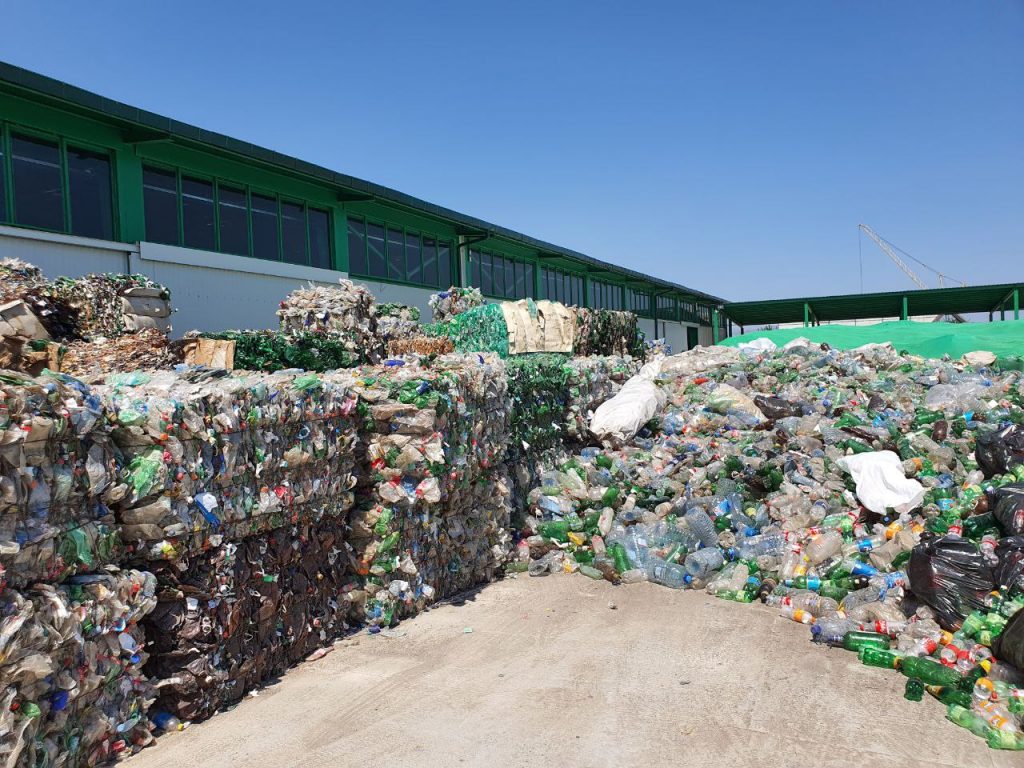
What advice would you give to start-up companies regarding why they should set a business strategy taking into account the principles of corporate sustainability?
As a start-up company poised for success, we strongly recommend embracing corporate sustainability as a fundamental element of your business strategy. By incorporating sustainability principles into your operations, you not only demonstrate your commitment to responsible practices but also position your start-up as a force for positive change.
Integrating sustainability into your business strategy inspires purpose and vision within your organization. It creates a shared sense of passion and motivation, rallying your team around a greater cause. Moreover, embracing sustainability differentiates your brand and gives you a competitive advantage.
Sustainability-oriented strategies also future-proof your business by enhancing resilience. Through efficient processes, optimized resource use, and waste reduction, you not only contribute to a healthier planet but also improve operational efficiency and cost-effectiveness. This positions your start-up to navigate future challenges with agility and adaptability.
Furthermore, integrating sustainability attracts top talent and fosters a positive company culture. Millennials and Gen Z, in particular, seek purpose-driven work and are drawn to organizations that prioritize sustainability. By creating an attractive workplace culture aligned with their values, you can attract and retain exceptional talent, fueling innovation, creativity and growth.




 Search
Search





